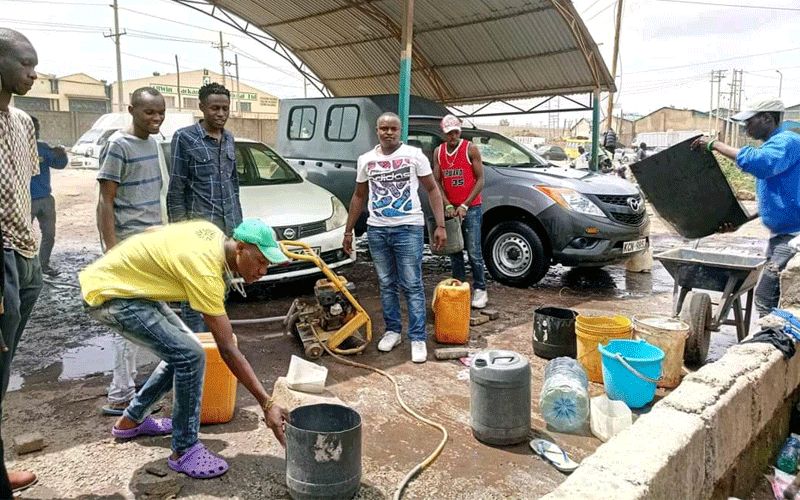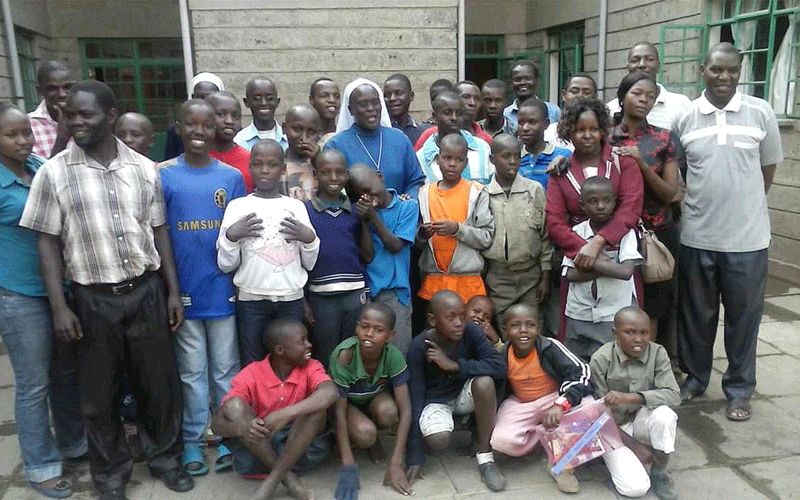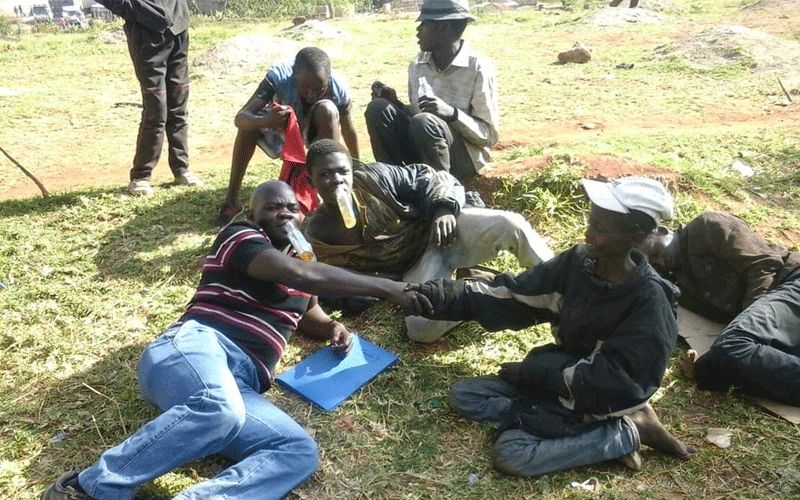He adds, “I have been to families that are completely broken especially in the slums areas. Some children live with parents who are drug addicts and such parents don’t think about the wellbeing of their children. Other mothers participate in prostitution and subject their children to lot of suffering.”
The rest, according to the 37-year-old Brother of St Patrick, are boys who have gone completely out of control because of their many years on the streets.
For years since its establishment in 1993, Kwetu Home of Peace grappled with the challenge of helping the “most difficult” street boys who had defied all forms of rehabilitation to come back in line. But Br. James had a plan in mind when he joined the home after working as a volunteer children’s officer before he took his final vows in the Ireland-based Religious Congregation in 2016.
“I learnt that all the street children needed was somebody they could trust. I immersed myself in every aspect of their lives and the more I journeyed with them, the more I understood them and the more they learnt to trust me even before I revealed to them my true intentions with them,” Br. James says.
He goes on to share instances when he dressed like a beggar and braved the cold on the streets of Nairobi in ungodly hours in his quest to identify with the vulnerable street children.
(Story continues below)

“I went with them wherever they went. I drank the tea which they bought from elderly street women, and even ate the meat they picked from butchers’ rejects and boiled on fires they built using old tires. I ate everything and they felt I was part of them,” he says adding, “And I truly had this burning desire to be like them and to feel everything they felt.”
Br. James narrates that old women who have lived on the streets all their lives buy tea from cafeterias and resell it to street children at a profit after adding water to it.
“The street families don’t think about what they eat. They don’t care if the water that is added to the tea is fetched in the dirty Nairobi river. They just drink it. And they have a strong bond between them,” he says.
The street families take care of each other and support one of them in trouble, the Brother explains, adding that they contribute among themselves to off-set each other hospital bills and to bury the dead among them.
“One of the biggest problems a street dweller can land into is when they fail to contribute towards a certain course,” he says, adding, “I’ve seen them pass word among themselves that they needed KES.200.00 (US$2.00) to give one of their own a decent send-off. They then pay for space on the burial grounds, assign one of them the role of a preacher and bury one of their own. Those who don’t cooperate are beaten and chased from the bases where they hang out.”
Learning this strong connection among street families helped Br. James when he started Kayaba Multipurpose Youth Group Carwash to empower young people who go back to the streets after rehabilitation.
“When I told one street boy that I needed to see them for a meeting, he would relay the information to others and many of them came because I had become well known among street families,” he says.
The first meeting he conducted in 2015 with the street boys to plan for the Carwash attracted more than 50 street boys at Our Lady of Peace Catholic Church in Nairobi’s South B, which has been the boys’ drop off center for years. It was also from this parish that a Small Christian Community (SCC) started Kwetu Home of Peace that has transformed thousands of lives, admitting 30 street boys three times a year since 1993.

With support from Misean Cara in Ireland, Kayaba Multipurpose Youth Group Carwash was launched in 2016 with over 70 street children and youth who had demonstrated consistency in attending the mentorship programs. Out of these, Br. James selected officials that helped him do the paperwork for the project.
Rashid, who had just completed a three-month rehabilitation at Kwetu Home and a short carpentry course at a Kenyan institution, took up the chairman position at the project.
“Going around offices, interacting with government leaders in the process of completing the paperwork of our project was a very insightful experience for me. I felt cared for with Br. James holding our hand as we moved around the offices,” Rashid recounts.
Other well-wishers including politicians would come in, later contributing a container that the former street children have converted into an eatery at the premises of the carwash. The place has also been fitted with piped water, which the children sell to get extra money. There is also electricity to help them work around the clock to increase their income.
On a good day, the boys who work in shifts of around seven people make up to KES.3,000.00 (US$30.00), which they divide among themselves and deposit the rest in a bank.
The project has opened many opportunities for the boys who are given the first priority in short government contracts such as clean-up jobs in slums. Others have been given loans to start businesses of their own. Still, others have gotten a recommendation that helped them land jobs around Nairobi.
“The car wash only opened their eyes to many opportunities they have out there. Many registered members at the carwash such as Rashid are now involved in better-paying projects,” Br. James says.
Rashid says that his way of giving back to the project is reaching out to younger street children who are given an opportunity to make money from the carwash.
“It is now my responsibility to point other boys in the direction of the project, which really helped me,” says Rashid, adding, “I live in the slums and I know every child around. I know those who really need the car wash to survive.”

All registered members of Kayaba Multipurpose Youth Group Carwash have put their past lives behind them and are living dignified lives, a situation that Br. James finds gratifying.
“None of them lives on the streets. Many of them are married, some with children and are now living simple lives in the slums. To me, this is a miracle,” Br. James says, adding that one of the young people on the carwash project enrolled in university and is pursuing environmental studies.
Asked what keeps him moving, the Patrician Brother who was brought up in a polygamous family says, “It is passion. I deeply love what I am doing and as I said, I have immersed myself completely in the lives of these street children. I don’t believe in changing the world but I know I can change the world of one person. And I have seen it in the transformed lives of these former street children.”
This story was first published by ACI Africa on 6 May 2020
Agnes Aineah is a Kenyan journalist with a background in digital and newspaper reporting. She holds a Master of Arts in Digital Journalism from the Aga Khan University, Graduate School of Media and Communications and a Bachelor's Degree in Linguistics, Media and Communications from Kenya's Moi University. Agnes currently serves as a journalist for ACI Africa.













